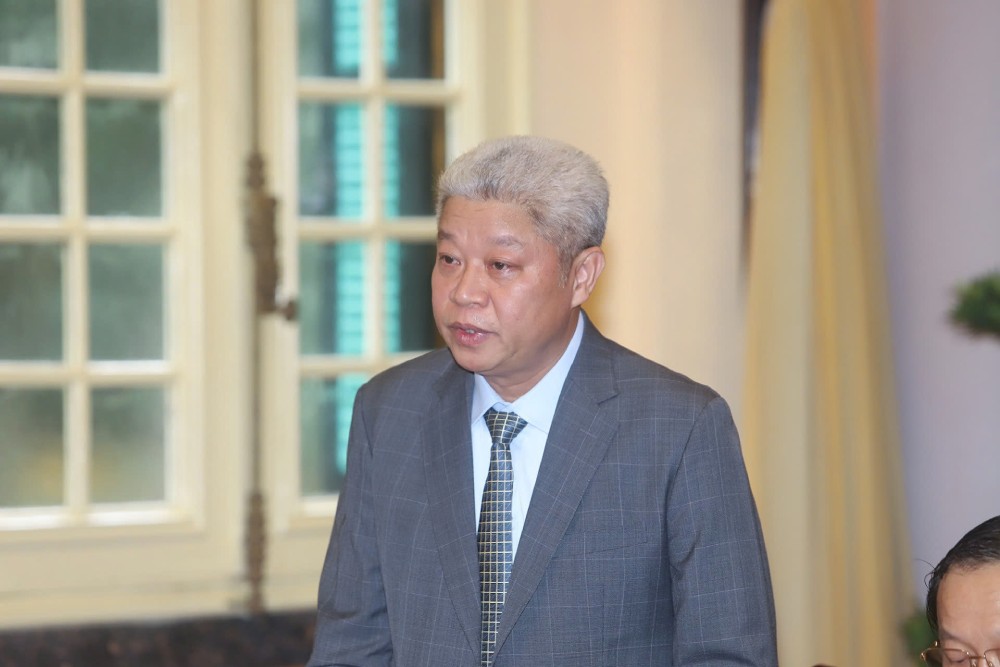Reforming unemployment insurance policies
This morning (July 11), the Office of the President held a press conference to announce a number of Laws passed by the National Assembly at the 9th session, including the 2025 Employment Law, effective from January 1, 2026.
Deputy Minister of Home Affairs Nguyen Manh Khuong said that the Law on Employment amends relevant regulations on qualifications, national vocational skills standards, assessment, issuance of national vocational skills certificates... to meet the requirements of the labor market and update with regional and world vocational skills standards and qualifications...
The Deputy Minister of Home Affairs said that the law has reformed unemployment insurance policies towards being a tool for labor market governance in the spirit of Resolution 28 of the Central Committee on reforming social insurance policies (including reforming unemployment insurance policies).

Accordingly, the 2025 Law on Employment has focused on amending major and key contents such as: expanding the scope of unemployment insurance participants to increase policy coverage and compliance with the 2024 Law on Social Insurance; flexible unemployment insurance contribution levels (maximum of 1% of monthly salary), simplifying conditions, reducing administrative procedures for employees and employers in accessing and receiving unemployment insurance regimes...
Recognizing vocational skills to encourage people to self-study to increase income
At the press conference, the press raised questions about whether the unemployment rate will be reduced when the law comes into effect, Director of the Department of Employment Vu Trong Binh said that the national unemployment rate depends on many factors, including growth rate, economic restructuring, economic restructuring by region and locality; also depends on international trade relations, population structure, demography, micro-economic policies. Employment and labor policies are one of the factors affecting the unemployment rate.
With the Law on Employment, Mr. Binh stated the purpose of perfecting the institution on the labor market, "the labor market becomes one of the macro balances", which has also been affirmed in Resolution 56 of the Government.
"10 years ago, when investing in localities, no one asked if there was a shortage of labor. Now, when investors come, in addition to land issues and investment procedures, the first question for localities is whether there is labor or not. This is one of the factors for investors to make investment decisions" - Mr. Binh said.
Mr. Binh said that the law has included important contents on labor registration. Accordingly, all Vietnamese workers aged 16 and over are registered with the national population database - this is the platform for building a national labor database.
Based on that, labor market information will be completed. From there, it can be grasped that in the next 5 years, Vietnam will have how many participating workers and how many unemployed workers. The data system will also help analyze and forecast the labor market.
The Ministry of Home Affairs is assigned to pilot the operation of the national job exchange, expected to open in September. The Director of the Department of Employment said that the platform will be a basis for businesses to connect with workers. Private enterprises with data can also connect to this platform to synchronize.
The revised Law on Employment has major changes in vocational skills, each worker, although self-trained and practicing, is recognized for vocational skills after taking the exam. Currently, there are 1 million workers who practice very well but are not recognized, and do not have vocational skills certificates.
Expanding the recognition of vocational skills will encourage people to self-study in conjunction with practice, when they have a certificate, they can increase their salary, income, etc.
The Ministry of Home Affairs hopes that if this is done well, it will improve the quality of labor of people and businesses through self-study.












